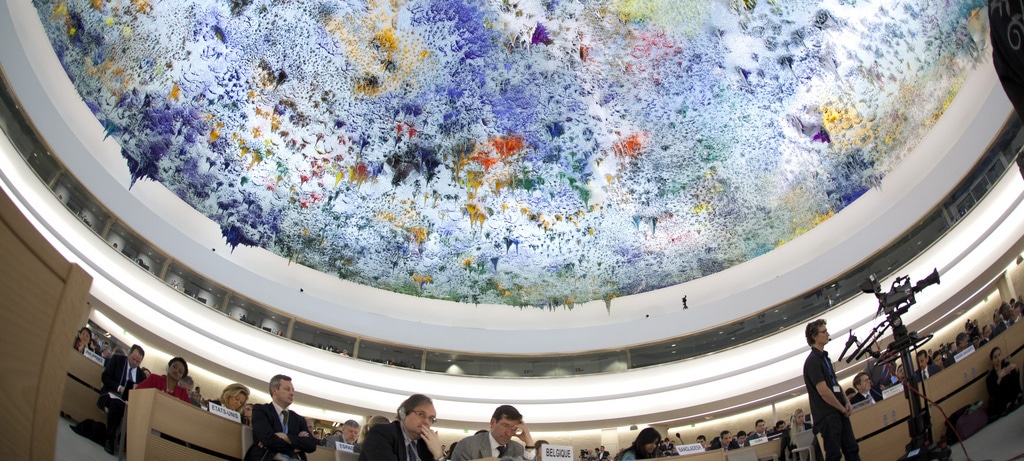Several times a year, the U.N. Human Rights Council evaluates the human rights situation of U.N. member states through a process called the Universal Periodic Review (UPR). Since 2006, this process has aimed to promote respect for human rights and hold states accountable to their obligations. Access Now often joins with partners around the world to submit reports on countries due for review, providing an overview of the state of digital rights in the countries, and highlighting any developments since the previous UPR cycle that affect rights online.
One of the countries under review this year is Bolivia, and Access Now joined with Fundación Internet Bolivia and Derechos Digitales to report on the state of digital rights in the country. We focus on the attempts by the government to limit the rights to freedom of expression and privacy, as well as issues relating to gender, such as the disparity in internet access and the rise of gender-based violence online.
Since the last review in 2014, Bolivian lawmakers proposed a bill that would have greatly dampened freedom of expression in the country. The bill was proposed in 2016 in response to a referendum that would have reformed Bolivia’s constitution to allow President Evo Morales to run for a fourth term. After a majority voted against this change, the government blamed defeat on an online campaign by anonymous actors to discredit the president. Lawmakers therefore proposed a bill that would ban anonymity online; punish online defamation of private citizens or public officials; and create a government office specifically to monitor social networks. Although the bill was not passed, it is concerning that it was not the first time the government considered regulating social media to restrict freedom of expression.
Journalists have also faced threats to their work. In November 2018, the National Press Association of Bolivia expressed concern about reports of police surveillance of journalists’ online activity. Such surveillance puts journalists at risk and severely limits their ability to investigate and report the news freely and accurately.
In terms of privacy and data protection, an area of concern is the Digital Citizenship Law which was passed in July 2018. This law allows for the massive collection of personal data and permits public institutions – and private entities that provide public services – to share data and information on individuals. The law provides few safeguards against the misuse of this data by public officials, and little clarity regarding complaint mechanisms for affected persons.
We also raise issues relating to gender, such as the disparity in internet access and gender-based violence online. The Americas is the only region with a higher percentage of women than men using the internet; Bolivia, however, is the reverse, with 43.5% of men using the internet compared to 36.4% of women.
In terms of gender-based violence, in spite of reports by civil society of the growing incidents of online harassment and threats on social media, there is no systematic public policy aimed at addressing digital violence. This kind of violence affects a large percentage of women, and the government must take steps to address it.
We recommend that the Bolivian government address these issues by taking the following steps:
- Cease all forms of online monitoring and surveillance of journalists’ communications and activities;
- Ensure that the implementation of laws meant to combat disinformation online will not lead to limitations of the freedom of expression;
- Limit the collection and use of data for the provision of public services to only those that are necessary and proportionate to the legitimate aim pursued; and
- Recognize gender-based violence online as gender discrimination and revise laws to address this form of discrimination.
See the full report here (in Spanish).
